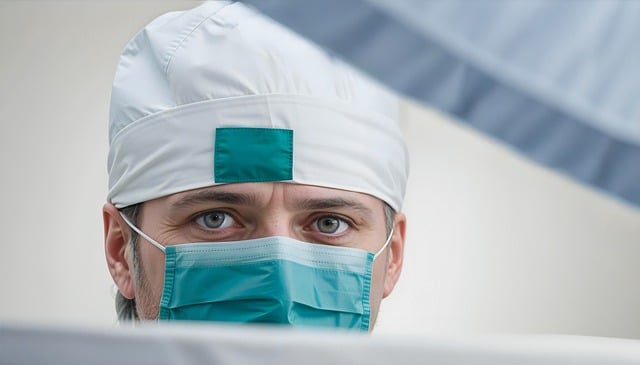Translation services for UK Standard Operating Procedures (SOPs) are indispensable for ensuring compliance with healthcare regulations and maintaining patient safety across linguistic barriers. These specialized translation services must be proficient in both language translation and the technical intricacies of healthcare SOPs, adhering to the strict standards set by the Medicines and Healthcare products Regulatory Agency (MHRA). They involve a meticulous process that includes subject matter experts well-versed in UK healthcare regulations, strict confidentiality measures to handle sensitive information, and rigorous quality assurance with peer review. The ultimate goal is to produce functionally equivalent SOPs that uphold the integrity of patient treatment and outcomes while fostering public trust in the UK healthcare system. Key certifications like ISO 17100 for medical device translations are highly recommended to guarantee the highest level of precision and compliance in translated SOPs.
Navigating the complex interplay of healthcare standards and operational protocols is a critical aspect of maintaining high-quality patient care in the UK. This article delves into the essential process of translating Standard Operating Procedures (SOPs) to align with stringent UK healthcare regulations. We will explore the necessity for such translations, the legal and regulatory frameworks that govern them, and the best practices to ensure accuracy and compliance. Additionally, we will highlight the significance of choosing professional translation services specializing in UK SOPs to facilitate seamless integration of global practices within the UK’s healthcare ecosystem.
- Understanding the Necessity for SOP Translation in UK Healthcare
- Navigating Legal and Regulatory Frameworks Governing SOP Translations
- Best Practices for Accurate and Compliant Translation of SOPs
- Selecting Reliable Translation Services for UK Standard Operating Procedures (SOPs)
Understanding the Necessity for SOP Translation in UK Healthcare

In the context of UK healthcare, the translation of Standard Operating Procedures (SOPs) is a critical function that bridges the gap between regulatory compliance and operational effectiveness. As the healthcare sector in the United Kingdom operates under stringent standards set by bodies such as the Medicines and Healthcare products Regulatory Agency (MHRA), it is imperative that all SOPs are accurately translated to reflect these regulations. This is where professional translation services for UK SOPs play an indispensable role. These services ensure that healthcare providers, whether multinational corporations or individual practitioners, can communicate and operate with consistency and precision across different linguistic environments. The translation of SOPs from English into other languages, or vice versa, is not merely a matter of semantic equivalence but involves a deep understanding of the healthcare context, technical terminology, and regulatory nuances. This process is pivotal in maintaining high standards of safety and quality within the healthcare industry, facilitating a seamless integration of best practices and protocols that are essential for patient care. Moreover, by employing experts in both language translation and healthcare SOPs, these services guarantee that the translated documents are not only linguistically accurate but also functionally equivalent, ensuring that all stakeholders can rely on the procedures without compromise. This level of precision is crucial for maintaining trust in the healthcare system and for upholding the integrity of patient treatment and outcomes.
Navigating Legal and Regulatory Frameworks Governing SOP Translations

Navigating the legal and regulatory frameworks that govern the translation of Standard Operating Procedures (SOPs) in the UK healthcare sector is a complex task that requires meticulous attention to detail. Organizations looking to translate their SOPs to align with UK standards must first understand the stringent requirements set forth by bodies such as the Medicines and Healthcare products Regulatory Agency (MHRA). These guidelines ensure that translated documents are not only linguistically accurate but also reflect the intended procedures without altering critical safety or efficacy information. Translation services for UK SOPs must be proficient in both the source and target languages, possess specialized knowledge of healthcare terminology, and have a comprehensive grasp of the regulatory context. Moreover, they must adhere to the Good Documentation Practice (GDP) principles as outlined by the MHRA, ensuring that all translations are consistent, precise, and legally compliant. By engaging with translation services that specialize in this niche, healthcare organizations can navigate these complex frameworks confidently, upholding the integrity of their SOPs and maintaining compliance with UK standards.
In addition to legal compliance, the chosen translation service must be adept at handling sensitive and often proprietary information. The translators should be bound by confidentiality agreements, ensuring that trade secrets and proprietary methods are protected throughout the translation process. Furthermore, these services should offer a robust quality assurance process, which typically includes a peer review by subject matter experts to verify the scientific accuracy of the translated content. This dual focus on legal compliance and scientific integrity is crucial for translating SOPs in the UK healthcare sector, where the stakes are high and patient safety is paramount.
Best Practices for Accurate and Compliant Translation of SOPs

When translating Standard Operating Procedures (SOPs) to align with UK healthcare standards, it is imperative to engage with professional translation services that specialize in this niche. These services should possess a deep understanding of both the source and target languages as well as the intricacies of healthcare-related SOPs. The translators must be adept at converting technical terminology while maintaining the original intent and regulatory compliance of the documents. To achieve accuracy, translation services for UK Standard Operating Procedures should employ subject matter experts (SMEs) who are familiar with the UK’s healthcare regulations and standards, such as those set by the Medicines and Healthcare products Regulatory Agency (MHRA). This ensures that the translated SOPs not only reflect the procedures accurately but also adhere to the legal and safety requirements that govern UK healthcare practices.
Furthermore, the translation process should involve a multi-step workflow to guarantee the highest level of precision. This includes initial translation by experts, followed by a thorough review and validation against the original SOPs to confirm that all technical specifications and nuances are accurately captured. Next, the translated content should undergo a cultural adaptation process to ensure that it is appropriate for the UK context. Finally, a proofreading phase by native speakers with a background in healthcare completes the cycle. This meticulous approach not only aligns the SOPs with UK standards but also ensures that the language used is clear, precise, and understandable to UK healthcare professionals. By adhering to these best practices, translation services can deliver SOPs that are both accurate and compliant, facilitating seamless integration into the UK healthcare system.
Selecting Reliable Translation Services for UK Standard Operating Procedures (SOPs)

When translating Standard Operating Procedures (SOPs) to meet UK healthcare standards, selecting a reliable translation service is paramount. The accuracy and precision of these translations are critical, as they directly impact patient safety and compliance with legal and regulatory requirements. A proficient translation service specializing in medical and technical documents should be at the forefront of this task. They must possess a deep understanding of both the source and target languages, as well as the nuances inherent in healthcare SOPs. Additionally, they should have a proven track record of working within regulated industries, ensuring that all translated content adheres to the stringent standards set forth by the UK’s Medicines and Healthcare products Regulatory Agency (MHRA) and other relevant bodies. It is imperative to verify that the chosen service holds appropriate certifications, such as ISO 17100 for medical device translations, and has a robust quality assurance process to guarantee the highest level of accuracy and consistency across all translated SOPs. This due diligence ensures that the translation not only meets the linguistic requirements but also aligns with UK healthcare protocols, facilitating seamless integration and operation within the UK’s healthcare environment.
In concluding our discussion on the translation of SOPs to align with UK healthcare standards, it is clear that this process is not merely a formality but a critical step ensuring patient safety and regulatory compliance. Navigating the intricate legal and regulatory frameworks specific to the UK is essential for any healthcare provider looking to implement foreign SOPs. By adhering to best practices for accurate and compliant translation, providers can ensure that their procedures meet the high standards required within the UK’s healthcare system. Selecting a reliable translation service specialising in UK SOPs is paramount to overcome the challenges of this complex task. These services not only facilitate compliance but also promote efficient operations and enhanced patient care. It is through such diligent efforts that healthcare organisations can bridge international protocols with local regulations, thereby upholding the integrity and efficacy of global healthcare practices within the UK’s esteemed healthcare system.
